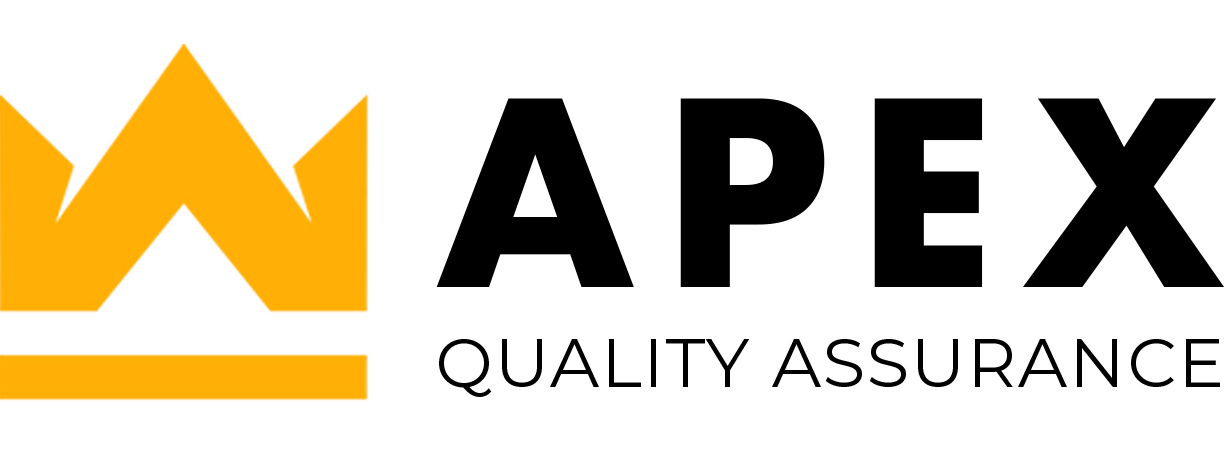Learn How you Might be Right for Opportunities Sweeping Across the Nation
For decades now, manufacturing has played an integral role in American industry, and now, we’re entering a new era of opportunity. Aerospace and defense manufacturing, in particular, are experiencing significant growth as demand for cutting-edge technology, sustainability, and national security influences who we need in the workforce.
Within the fiscal year of 2024 alone, the U.S. Department of Defense was allotted over $315 billion for procurement and R&D. With new efforts to bring jobs stateside in 2025, major aerospace firms like Boeing and Lockheed Martin are expanding their already vast domestic supply chains, creating opportunities at all levels in the quality assurance field.
What does that look like for people on the outside looking in?
The Rise of Quality Assurance in Aerospace and Defense
As supply chains grow more complex, quality assurance (QA) is no longer a backroom function; it’s an immediate priority. Under the guidance of AS9100 and ISO:9001, organizations that are all jockeying to secure long-term contracts must demonstrate a capability to meet specific benchmarks. For suppliers, more hurdles exist within special processes applicable to NADCAP certifications.
In the efforts of adapting to standards, QA professionals serve on the front line. Whether they’re auditing internal systems, identifying gaps in production processes, or training teams to prepare for a third-party audit, quality professionals are essential in every stage of compliance and improvement.
Who Thrives in This Work?
People who succeed in quality assurance are detail-oriented, process-driven, and curious to a fault. They like asking questions, identifying patterns, solving problems, and sometimes, rectifying problems before they even surface. It goes without saying that QA professionals excel under structure; in fact, they often find purpose in it. Aside from processes and groundwork, QA requires strong communication skills. These jobs aren’t just about spotting errors, they’re helping teams understand how to strive for efficient, compliant systems.
Many present QA professionals hail from sectors like manufacturing, engineering, and logistics, but others start from scratch. With the right mindset and training, a newcomer to the field can quickly become a valued part of any quality-focused organization.
Certifications That Open Doors
Getting certified is often the first real step into the world of QA. For aerospace and defense, the most widely recognized courses and certifications include:
- ISO:9001: This type of certification covers the basics surrounding manufacturing and the jargon that comes with it. Think of it as learning to speak the language of QMS.
- AS9100 Internal Auditor: This certification is the first step into the world of aerospace QA. Ideal for professionals tasked with conducting internal audits or seeking an entry point into aerospace QMS, the internal auditor course is the most time and cost-efficient way to qualify yourself for an entry-level QA position.
- AS9100 Lead Auditor Certification (Probitas Authenticated): A step up from Internal Auditor, this certification prepares individuals to lead audits and demonstrates advanced knowledge of audit principles and the AS9100 standard.
- NADCAP Training: Reserved for the suppliers of manufacturers, knowledge of NADCAP processes is essential for anyone working with chemical processing, heat treating, or non-destructive testing. Organized into a ‘take as needed’ format, short training modules cover individual processes as they are relevant to you.
APEX QA offers training in all of these areas. With course options designed for every level of experience, our instructors bring years of industry insight and foster interactive environments that leave you capable and confident.
Career Progression in QA
Quality assurance offers a clear, rewarding career path, especially in regulated industries like aerospace and defense. Here are some of the roles you might see down the road:
Entry-Level Roles: Quality Technician, Internal Auditor
- Responsible for: data collection, basic inspections, and assisting with audits.
- Certifications like ISO 9001 or AS9100 Internal Auditor are often necessary.
- Education: A high school diploma or equivalent is typically required. Many roles also prefer candidates with an associate’s degree in a technical field or quality-related coursework.
Mid-Level Roles: Quality Engineer, Lead Auditor
- Here, professionals are tasked with spearheading internal audits, mentoring peers, and contributing to root cause analysis.
- Lead Auditor certification and familiarity with NADCAP processes ensure the best chance for a candidate to secure this position.
- Education: A bachelor’s degree in engineering, manufacturing, or a science-related field helps a candidate stand out. Experience sometimes substitutes for formal education, only when backed by relevant certifications.
Senior-Level Roles: Quality Manager, QA Director, Compliance Officer
- The pinnacle of most quality institutions, these professionals oversee audit programs, manage supplier quality, and diligently communicate with registrars and certifying bodies.
- The final stop for the most capable professionals, these senior positions require years of leadership and expertise within the industry.
- Education: A bachelor’s degree is standard, while master’s degrees or more niche certifications, such as a Six Sigma Black Belt, provide a competitive edge.
Consulting and Third-Party Auditing
- Professionals equipped with a Probitas Authenticated Certificate (from a certified training module) may seek out opportunities as a third-party consultant
- Experience with NADCAP standards and processes is particularly coveted by organizations
- Education: Extensive hands-on experience and advanced certifications are essential to succeed in this space.
These roles aren’t isolated; they grow as you do. If you’re an exceptional employee, you’ll likely be fast-tracked into leadership or advisory positions, especially when objective, detail-driven compliance gives a company the competitive edge it needs to secure clients.
Final Thoughts
While political and technological landscapes may change, it is a given that American manufacturing is driven by quality. While the demand for precision and accountability continues to grow, the value of a good quality professional grows synchronously. For individuals seeking a stable, intellectually stimulating career that makes an impact, look no further than QA.
Whether you’re looking to make a start in the field or sharpen your skills to meet heightening industry standards, APEX QA offers training designed to meet you where you are and move you toward your goals. With real-time feedback ingrained into each one of our programs, instructors balance theory and real-world application, making learning fun while preparing you to exceed professional and personal expectations.
Together, we can build a career and legacy that lasts. Call or email us to explore our upcoming training to be ready when opportunity comes knocking.
Call: (919) 635-5581
Email: info@apexqualityassurance.com



